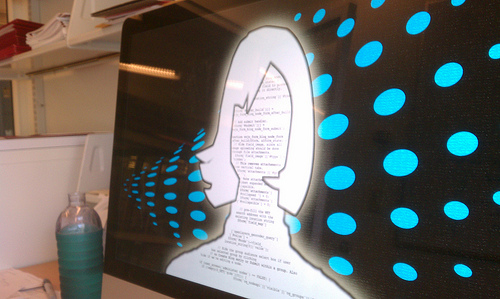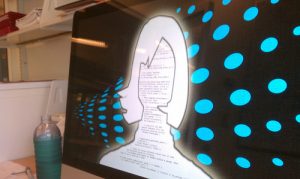Making the right moves: Technology and the personal side of hiring workers


 Technology has changed every aspect of business and how companies are run. However, professional etiquette and experience are still relevant in a computer age where college graduates are checking their mobile devices while waiting for an interview or at dinner with a client. Both employers and job seekers can benefit from an understanding of how technology has transformed human resources and the application process.
Technology has changed every aspect of business and how companies are run. However, professional etiquette and experience are still relevant in a computer age where college graduates are checking their mobile devices while waiting for an interview or at dinner with a client. Both employers and job seekers can benefit from an understanding of how technology has transformed human resources and the application process.
The social media résumé
Today, anyone can have a perfect resume. There are enough templates, examples and online services to let a regular worker appear like an A-player on paper; however, the newer social media resume is one that companies have their eyes on. Anyone looking to apply for a job should be certain what their online information says about them. Perhaps they made some outrageous political statements on Twitter, have inappropriate pictures on Facebook or have engaged in pointless bickering on message boards. As Mashable notes, status updates that complain about a job or company are a sure fire way to get fired or prevent a future hiring. Anything posted online can find its way into a human resources department, however secure it seemed at the time.
Both sides can Google search
When the Internet took off, savvy job hunters made terrific use of available information online. With everything from interview prepping strategies to company backgrounds and average salary data, people could appear as if they knew everything about their potential employer, their company philosophy and what salary range to negotiate. But the interviewer knows all this too. Human resource departments have prepped with the same data, know the generic interview guides posted online and are ready for applicants that simply appear to understand the company and position.
The interview impression
There are plenty of resources guiding applicants and interviewers for in-person meetings, but today’s technology allows companies to conduct online video interviews. Both sides need to be prepared to make a great impression. The telecommuting joke of wearing a jacket and nice shirt with pajama pants won’t work if someone needs to get up at some point or is asked to. Online interviews should be conducted in a clean office space that does not show any clutter, offers favorable lighting and blocks out any background noises. As Money Crashers points out, “What would look better: a solid white wall or your bed with Superman sheets and a Garfield pillow?”
Human resources’ latest software
The improvements in available software have simplified the application process for the human resources department. Online software products let a business easily manage applicant information alongside data for current employees. Rather than having to track a number of paper files or have job seekers seemingly endlessly filling out forms, the process can be taken online and simplified.
Where is the personal touch?
Many times with technology, people end up losing the personal side of relationships and communication. At its core, an interview is about one person who represents the company’s interests getting to know a person who is looking to contribute to the business. While technology can aid the process, it still requires honest communication and proper manners. For the human resources department as a whole, advancements in software do not mean an end to personal relationships with employees. Instead, human resource personnel can spend less time managing files and calculating data and more time conversing with staff members.
From the job and employee search to the interview and beyond, the relationship between workers and companies can still be personal and benefit from technology. Both sides need to remember they are working with real people and that their online image is a representation of their character. Businesses that utilize their technology to aid their search will reap the rewards in the long run.
